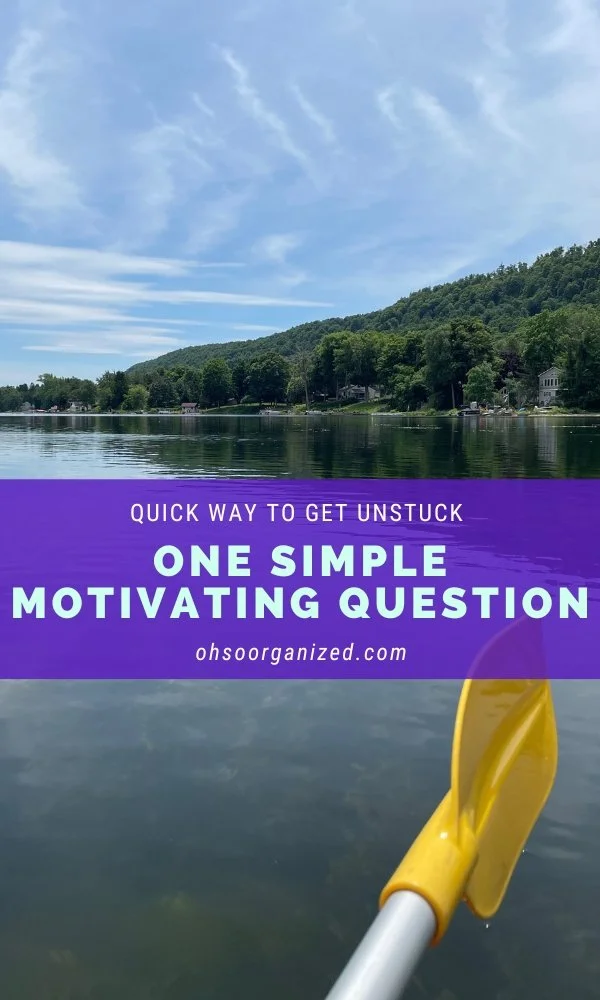Does this sound familiar? Your list of things to do is growing. It’s getting so large that you feel overwhelmed.
While you want to get things done, you’re having trouble getting started. You’re unclear where to begin, and the overwhelm squashed your motivation.
This is a normal situation. I’ve been there, and so have many of my clients. I experienced it just this week. We returned from part one of a beautiful vacation in the Finger Lakes. Our only goals were to relax, have fun, and not work. Mission accomplished.
The shorter part of the vacation was at home, where we planned to do some work around the house. Talk about many projects to attend to—it’s a never-ending list.
By the third day, it was more challenging to get motivated to start working. I kept thinking about our time away and the joy we had kayaking daily on Song Lake. I wanted to go back.
One Simple Motivating Question
This got me thinking about something the wise coach, Cameron Gott, PCC, once said. When I studied with him during my Coach Approach training, he always asked the best questions. This particular question is excellent for motivation. He asked:
“What’s a quick completion?”
I love this question because it encourages you to:
Reframe your overwhelm.
Get yourself in a doing mode.
Focus on what can easily be accomplished.
Feel motivated to do something.
How to Use the Motivating Question
When I asked myself, “What’s a quick completion?” it immediately helped me shift my focus and give attention to something I could easily do. What did I choose? I repotted a few new plants for the greenhouse. Taking action, moving my body, playing with dirt, and caring for the plants energized me.
Once that was done, I no longer felt overwhelmed. I was motivated to do more, so I:
Created my six-month blog calendar
Updated my Calendly scheduler
Emptied the dishwasher
Wrote this post
All items were easy to accomplish and quick to complete, except for the blog post, which took more time to write, edit, and format. However, once I engaged in doing and completing simpler tasks, I was ready to do something requiring more time and deeper concentration.
Reframe Completion
The other aspect to consider is redefining completion. Specific projects require many steps, and finishing them takes time. Instead, reframe completion as accomplishing one aspect, one single step, or any progress made.
Use Cam’s question to jumpstart motivation. It will help you to:
Experience the satisfaction of accomplishing something.
Motivate you to do more.
What helps you get motivated to take action? Is there a question that encourages you to start? How can the “quick completion” question work for you? I’d love to hear your thoughts. I invite you to join the conversation.
If you want to increase motivation, activate, or get organized, email me at linda@ohsorganized.com, call 914-271-5673, or schedule a Discovery Call. Getting unstuck is possible, especially with support.
















